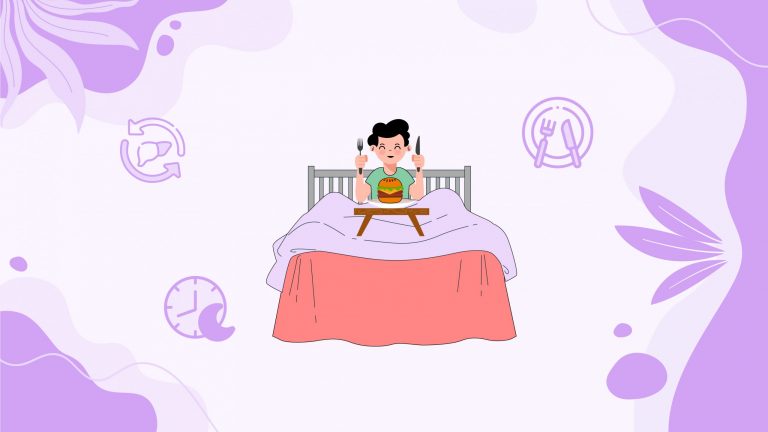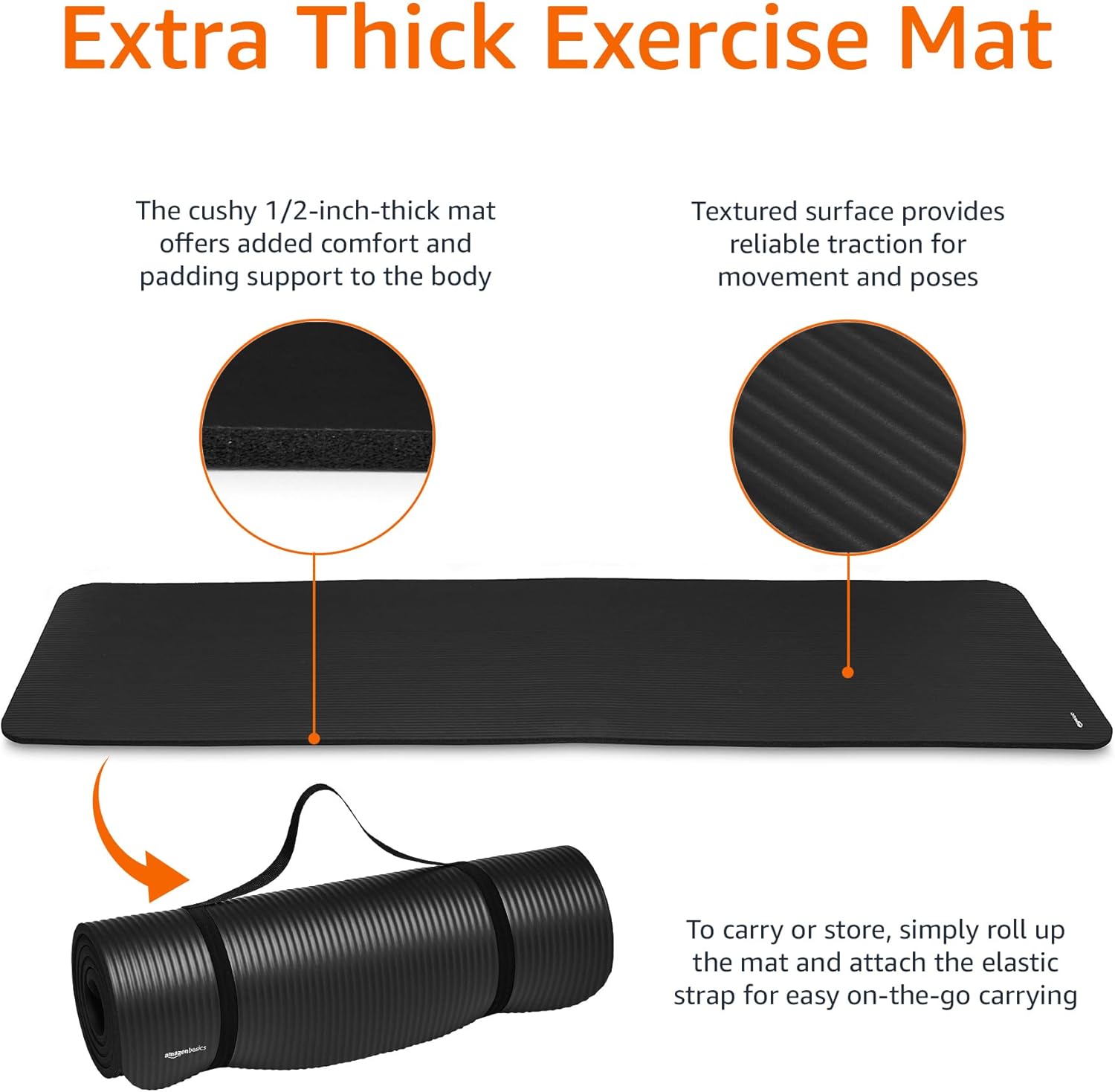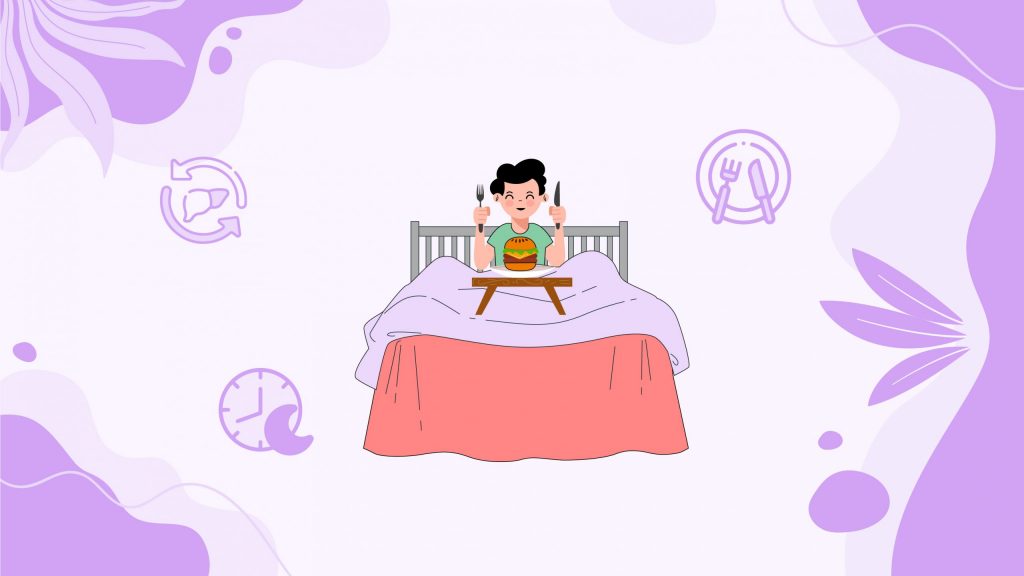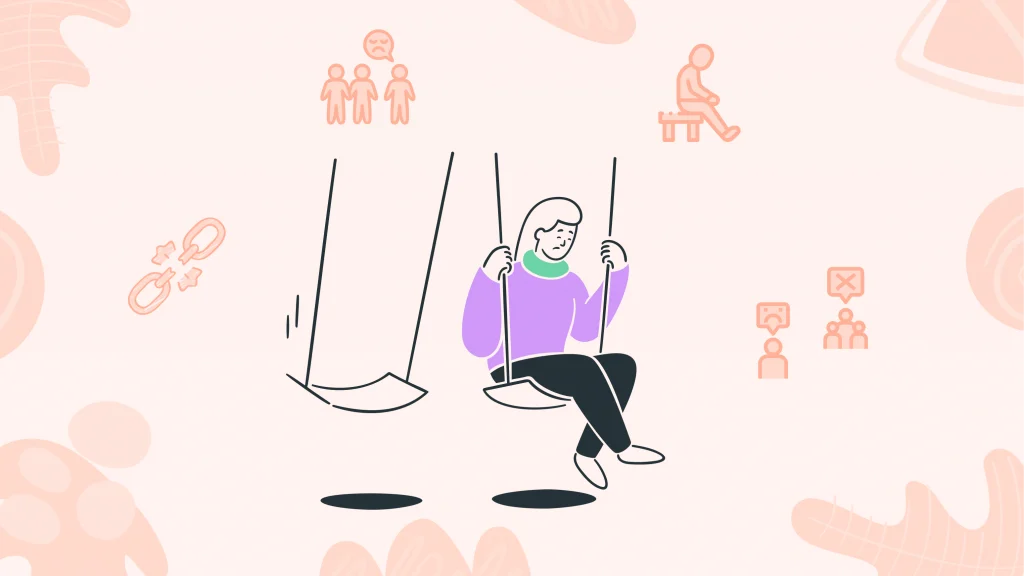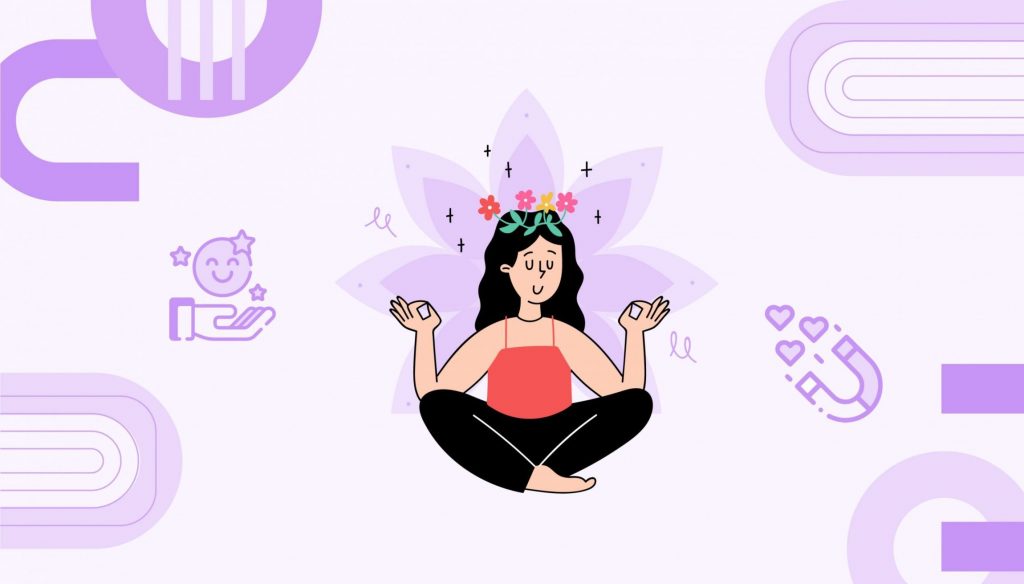Are you tired of binge eating at night? Despite countless attempts to curb your cravings, you find yourself returning to unhealthy eating patterns.
If this is your story, stay as we give you the key takeaways to put an end to this problem once and for all.
Binge eating has become a global concern, particularly nighttime binge eating. By the time we recognize the harmful effects of binge eating at night, it is often already too late. This behavior can lead to various physical and emotional issues, making it essential to address and understand the underlying causes behind our urge to binge eat.
What is Binge Eating?
Binge eating is when we eat large portions of food in short intervals of time. It is often accompanied by a sense of loss of control. The triggers that cause us to indulge in binge eating can be either emotional or psychological. When we are stuck in the cycle of binge eating, we try to find our comfort in food.
The disorder can lead to various health issues, including obesity, diabetes, and cardiovascular diseases, as well as psychological problems like low self-esteem and depression.
Ways to Stop Binge Eating at Night
Recognizing that you indulge in binge eating at night is your first sign of victory. Addressing a problem first requires acknowledgment. Recognizing this behavior enables you to confront the underlying triggers and develop effective strategies for change.
Here are the ways in which you can curb your midnight cravings:
#1. Avoid Skipping Meals
The number one rule to avoid binge eating at night is to never skip your meals. When we indulge in irregular eating patterns, we experience hunger pangs at odd times, which becomes the greatest cause of binge eating at night. When we make it a rule to eat our meals in a timely and in the right proportion, we seldom fall into the pitfalls of eating random foods at uneven times and save ourselves from feeling stuffed and lazy.
🎭 Fun Fact
Research shows that late-night eating is often associated with higher caloric intake and poorer food choices.
Make sure you maintain a healthy eating routine for the day so that you don’t end up standing in front of your refrigerator in the middle of a night.
#2: Store Healthy Snacks
Another effective way to keep yourself from eating unhealthy at odd times is to store healthy ingredients and snacks. It could be mixed seeds, greek yogurt with berries, chia seed pudding, air-popped popcorn, almonds or walnuts, cottage cheese, rice cakes, dark chocolate, herbal tea with a small snack, and so on and so forth. You can also opt for other healthy alternatives to save yourself from the harm that unhealthy binge eating at night causes you.
For instance, you can use an air fryer instead of traditional frying to satisfy your craving for fried food. This will not only help you reduce excess oil and calories, but also provide a healthier alternative that still delivers a satisfying crunch and flavor, allowing you to enjoy your favorite dishes without the guilt.
#3: Practice Mindful Eating
Ever heard of the term ‘mindful eating’? Mindful eating is when we dedicate our full attention to the act of consuming our meals. We align our thoughts and feelings with the experience of eating, savoring each bite, and being aware of our hunger cues and satiety.
👉 Pro Tip
Try putting a blindfold over your eyes and experience your meal in a new way. It will enhance your appreciation of the flavors, textures, and aromas, allowing you to savor each bite and engage all your senses.
You may not realize it, but you don’t always feed yourself while listening to the hunger call. Many times, you indulge in emotional eating and stress eating and often use eating as an excuse to escape from boredom or to distract yourself.
Explore the depth of mindful eating, as it can open the doors to new experiences in other areas of your life. Once you understand the significance of practicing mindful eating, the thought of applying this awareness to other areas will naturally arise.
#4: Stay Hydrated
Keeping yourself well hydrated throughout the day is beneficial not only for curbing untimely cravings but also for improving your metabolism and even assisting in weight loss. Whenever you catch yourself indulging in binge eating at night, make it a habit to sip water throughout the day. Don’t wait for the thirst to hit. It is proven that by the time we feel thirty, our bodies have already been dehydrated to a certain point.
👉 Pro Tip
To track your daily water intake, carry a water bottle with you wherever you go. This will serve as a reminder to drink water regularly and help you easily monitor your consumption.
There are times when thirst can be mistaken for hunger. For this reason, you can make it a habit to sip a glass of water before indulging in any snacking. Also, to keep your nighttime binge eating in check, drink a glass of water before feeding yourself with midnight meals or snacks.
#5: Engage in Physical Activity
If you want to regulate your eating, keeping your diet in check alone will not help you. You have to get into the routine of exercising to bounce back from any eating disorder that you may be experiencing. You can choose any physical activity that works for you. If you are an athlete or someone who needs heavy workouts to keep their fitness level in check, you can follow a gym routine. If you want a light exercise option, you can start with yoga and seek benefits from its light stretches.
Often, we become victims of our sedentary lifestyle. Not only does it deteriorate our fitness level, but it also pushes us toward binge eating, especially nighttime binge eating, when we crave something to give us a boost after a long day. So, it’s recommended that you involve yourself in some form of physical activity. It will make you feel lighter from within and act as a motivation to avoid binge eating.
Quick Tips
- Focus on building a strict eating routine. Include the food items that meet your protein and fiber requirements.
- You can also drink a glass of water before consuming your meals. It will ensure that you do not indulge in overeating and also help keep your binge eating in check.
- Try to eat smaller portions of food and increase the number of meals you eat in a day. This will meet your dietary requirements and restrict hunger pangs at odd hours.
- Whenever you feel the urge to binge eat, try distracting yourself with activities like reading, writing, or doing light exercise; it will take your mind off food.
- Identify the triggers that cause the urge to binge eat at night and try to address them head-on.
- Install useful apps that help you track your calories and keep you motivated to achieve the required fitness level.
Conclusion
Overcoming the habit of binge eating at night requires patience and persistence to identify the triggers and uproot them for the core. Replacing your unhealthy habits with constructive ones can help you achieve success in reversing the pattern. Also, you must work in a holistic manner. Solely working on reducing your portion size or excessively indulging in physical exercises won’t help you find an escape from binge eating at night.
Remember, you can always turn up to seek professional guidance to make things easier. And it’s okay to take one step at a time; there’s no need to rush into the process and allow yourself time and space to transition through this.
FAQs
Yes, nighttime binge eating is a common concern. People binge-eat for emotional and psychological reasons.
It is best to avoid high-sugar and high-fat foods. It can interfere with your sleep and disturb the circadian rhythm– New Window.
Binge eating at night occurs due to emotional triggers, stress, or fatigue accumulated throughout the day. Also, restrictive eating during the day can become a prominent cause of excessive hunger at night.
Yes, keeping a food journal is a very good idea, especially when you easily fall into the habit of binge eating at night or any time of the day. It helps you identify patterns, triggers, and emotional connections to your eating habits.













